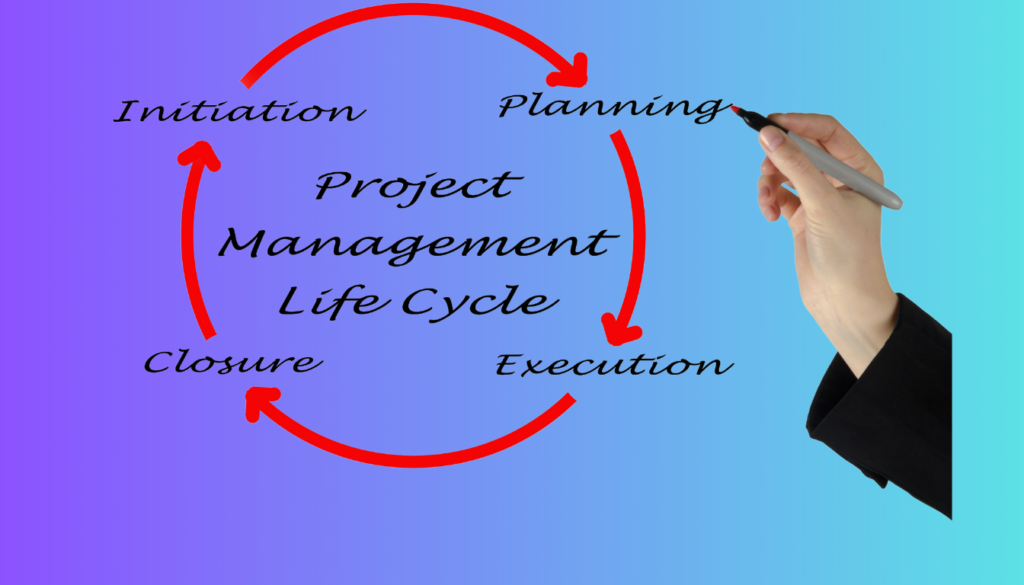Introduction
As a project manager, you are often faced with numerous challenges that can hinder the progress and success of your projects. From managing time and resources to handling unexpected changes and risks, the role demands a proactive and strategic approach. On your journey, you need to grasp and understand the fundamentals of project management We will explore some of the common challenges project managers encounter and provide practical strategies to overcome them, ensuring your projects run smoothly and achieve their objectives.
Table of Contents
Understanding Project Management

Project management is a systematic approach to planning, organizing, and executing tasks to achieve specific goals within a defined timeframe. A project manager plays a crucial role in this process, ensuring that all project objectives are met efficiently and effectively.
Definition and Key Responsibilities of a Project Manager
A project manager is responsible for overseeing projects from inception to completion. This includes defining project goals, creating a detailed plan, allocating resources, and managing the project team. Key responsibilities include:
Planning
Developing a project plan that outlines the scope, timeline, and resources needed.
For additional information, you can Download a free Project Plan-Schedule Checklist here which you can use to ensure that your plan/schedule is complete and realistic.
Execution
Coordinating tasks and ensuring that the project team follows the plan.
Monitoring
Tracking progress and making adjustments as needed to stay on schedule.
Closing
Ensuring that all project deliverables are met and conducting a post-project evaluation.
Educational Background and Skills Required

To become a successful project manager, it’s essential to have the right educational background and skill set. This combination of formal education and practical skills ensures that a project manager can handle the complexities of managing projects effectively.
You can also Download a Free Project Management skills improvement checklist here.
Recommended Degrees and Certifications
While there is no one-size-fits-all educational path to becoming a project manager, certain degrees and certifications are highly recommended:
- Bachelor’s Degree: A degree in business administration, management, or a related field provides a solid foundation in organizational and leadership principles.
- Master’s Degree: An MBA or a Master’s in Project Management can further enhance your understanding and skills.
- Certifications: Industry-recognized certifications like Project Management Professional (PMP), Certified Associate in Project Management (CAPM), and Agile Certified Practitioner (ACP) are invaluable. They demonstrate your expertise and commitment to the profession.
Essential Skills for a Project Manager
A project manager must possess a diverse set of skills to manage projects successfully. Key skills include:
| Skill | Description | Importance |
|---|---|---|
| Leadership | The ability to lead and motivate a team, inspiring confidence and driving team members towards achieving project goals. | Crucial for guiding the project team and stakeholders, ensuring cohesive efforts towards common objectives. |
| Communication | Effective communication involves verbal, written, and interpersonal skills to ensure all stakeholders are aligned and informed. | Key to maintaining transparency, managing expectations, and facilitating smooth interactions across all levels of project involvement. |
| Time Management | Managing time efficiently allows a project manager to prioritize tasks, meet deadlines, and ensure that project milestones are achieved. | Essential for keeping the project on schedule, managing resources effectively, and avoiding potential bottlenecks or delays. |
| Problem-Solving | The ability to quickly identify issues and develop effective solutions is essential for keeping projects on track. | Critical for addressing unexpected challenges that may arise during the project, ensuring timely and effective resolutions to keep the project moving forward. |
| Negotiation | A project manager often needs to negotiate with stakeholders, vendors, and team members to ensure resources are allocated appropriately and conflicts are resolved. | Important for securing the necessary resources, optimizing cost-efficiency, and managing stakeholder relationships to foster a collaborative project environment. |
Steps to Becoming a Project Manager
Becoming a project manager involves a series of well-defined steps that combine education, experience, and certification. Here’s a straightforward guide to help you navigate the path to becoming a successful project manager.
Step 1: Obtain the Necessary Education
Start with a solid educational foundation. Pursue a bachelor’s degree in business administration, management, or a related field. For those looking to advance further, a master’s degree or an MBA can be highly beneficial.
Step 2: Gain Relevant Experience
Experience is crucial in project management. Begin by seeking entry-level positions that offer project coordination or assistant roles. Internships and volunteer opportunities can also provide valuable hands-on experience.
Step 3: Pursue Certifications
Certifications validate your skills and knowledge. Aim to obtain industry-recognized certifications such as:
- Project Management Professional (PMP): Highly regarded and globally recognized.
- Certified Associate in Project Management (CAPM): Ideal for those starting their project management career.
- Agile Certified Practitioner (ACP): Focuses on Agile methodologies.
Step 4: Build a Strong Professional Network
Networking is essential for career growth. Join professional organizations like the Project Management Institute (PMI), attend industry events, and participate in online forums. Building connections with experienced project managers can provide mentorship and open up new opportunities.
Overview of Popular Project Management Certifications
| Certification | Description | Prerequisites | Validity |
|---|---|---|---|
| Project Management Professional (PMP) | Globally recognized certification that demonstrates expertise in project management. | – 4-year degree + 3 years of project management experience + 35 hours of project management education or CAPM certification – OR high school diploma + 5 years of project management experience + 35 hours of project management education or CAPM certification | 3 years (requires 60 PDUs for renewal) |
| Certified Associate in Project Management (CAPM) | Entry-level certification for project managers, ideal for those with less experience. | – High school diploma or associate degree – 23 hours of project management education | 5 years (requires retaking the exam for renewal) |
| Agile Certified Practitioner (ACP) | Certification focusing on Agile methodologies, suitable for project managers working in Agile environments. | – 2,000 hours of general project experience – 1,500 hours of Agile project experience – 21 hours of Agile practices training | 3 years (requires 30 PDUs for renewal) |
| PRINCE2 Practitioner | Certification based on the PRINCE2 methodology, widely used in the UK and Europe. | – PRINCE2 Foundation certification | 3 years (requires retaking the exam or completing CPD points) |
| Certified ScrumMaster (CSM) | Certification focused on Scrum, an Agile framework for managing complex projects. | – 2-day (16-hour) CSM course – Passing the CSM exam | 2 years (requires Scrum Education Units (SEUs) for renewal) |
Gaining Practical Experience
Gaining practical experience is a critical step in becoming a proficient project manager. Hands-on experience allows you to apply theoretical knowledge, develop essential skills, and understand the real-world challenges of managing projects.
Start with Entry-Level Positions
Begin your journey by seeking entry-level roles such as project coordinator or project assistant. These positions provide a foundational understanding of project management tasks and offer opportunities to work closely with experienced project managers.
Volunteer for Projects
Volunteering for projects within your organization or community can provide valuable experience. Look for opportunities to lead small projects or assist in larger ones. This not only builds your resume but also demonstrates your initiative and willingness to learn.
Internships

Internships are an excellent way to gain practical experience. Many organizations offer internship programs that allow you to work on real projects under the guidance of seasoned professionals. This experience is invaluable and often leads to full-time employment.
Shadowing Experienced Project Managers
Shadowing experienced project managers can provide insights into their daily responsibilities and decision-making processes. Observing how they handle project planning, execution, and problem-solving will enhance your understanding and skills.
Tools and Software for Project Managers
| Tool/Software | Description | Key Features | Best For |
|---|---|---|---|
| Asana | A versatile project management tool for organizing tasks and projects. | Task management, project timelines, team collaboration, workflow automation. | Small to medium-sized teams. |
| Trello | A visual tool using boards, lists, and cards to manage projects. | Kanban boards, task assignments, deadlines, integrations with other tools. | Teams preferring visual project management. |
| Jira | A robust tool for Agile project management, particularly for software development. | Scrum and Kanban boards, issue tracking, reporting, custom workflows. | Software development teams using Agile methodologies. |
| Microsoft Project | A comprehensive project management software for planning and managing projects. | Gantt charts, resource management, project scheduling, reporting. | Large enterprises and complex projects. |
| Monday.com | A flexible work operating system to manage projects, tasks, and workflows. | Customizable workflows, time tracking, automation, integrations. | Teams needing customizable project management solutions. |
| Smartsheet | A dynamic platform for project management and collaboration. | Grid, Gantt, card, and calendar views, automation, reporting, integrations. | Teams requiring versatile project views and automation. |
| Basecamp | A simple, user-friendly project management and team collaboration tool. | To-do lists, message boards, schedules, file sharing, real-time chat. | Teams looking for an all-in-one collaboration tool. |
Project Manager Challenges and How to Overcome Them
As a project manager, you will encounter various challenges that can impact the success of your projects. Here are some common challenges and strategies to overcome them.
It is important to know the essential project documents for each phase. You can also Download a Free project documentation checklist here.
Challenge 1: Scope Creep
Scope creep occurs when project requirements expand beyond the initial scope, often leading to delays and budget overruns.
How to Overcome:
- Clearly define the project scope from the beginning and ensure all stakeholders agree.
- Implement a change control process to evaluate and approve any changes to the project scope.
- Regularly communicate with stakeholders to manage expectations and avoid unnecessary changes.
Challenge 2: Time Management

Managing time effectively is crucial for meeting project deadlines. Poor time management can lead to missed deadlines and project delays.
How to Overcome:
- Use project management tools to create detailed project schedules and timelines.
- Break down tasks into smaller, manageable parts and assign realistic deadlines.
- Prioritize tasks based on their importance and urgency, and monitor progress regularly.
Challenge 3: Resource Allocation
Ensuring that resources are allocated efficiently can be challenging, especially when managing multiple projects simultaneously.
How to Overcome:
- Conduct resource planning at the beginning of the project to identify the required resources.
- Use resource management tools to track resource availability and utilization.
- Communicate with team members to understand their workload and adjust allocations as needed.
Challenge 4: Risk Management
Projects are often exposed to various risks that can affect their outcomes. Identifying and managing these risks is essential.
How to Overcome:
- Conduct a thorough risk assessment at the start of the project to identify potential risks.
- Develop a risk management plan that includes strategies for mitigating identified risks.
- Monitor risks throughout the project and adjust your plan as necessary.
Conclusion and Final Thoughts
Navigating the various challenges that come with being a project manager can be daunting, but with the right strategies, you can overcome them effectively. By addressing scope creep, managing time efficiently, allocating resources wisely, and implementing robust risk management practices, you can steer your projects towards success.
Remember, the key to overcoming these challenges lies in proactive planning, clear communication, and continuous monitoring. Equip yourself with the right tools and knowledge, and don’t hesitate to seek support from your team and stakeholders.
By mastering these aspects, you will not only enhance your project management skills but also contribute to the overall success of your projects and organization. Keep learning, stay adaptable, and continue striving for excellence in your role as a project manager.
FAQ
What qualifications do I need to become a project manager?
A bachelor’s degree in business, management, or a related field is often required. Additionally, certifications such as PMP (Project Management Professional) can enhance your credentials.
Do I need work experience to become a project manager?
Yes, relevant work experience is crucial. Many project managers start in entry-level positions and work their way up, gaining experience in project coordination and team leadership.
What skills are essential for a project manager?
Key skills include strong communication, leadership, time management, problem-solving, and proficiency in project management tools and software.
Are there specific certifications for project managers?
Yes, certifications like PMP (Project Management Professional), CAPM (Certified Associate in Project Management), and PRINCE2 are widely recognized and can boost your career prospects.
Can I become a project manager without a degree?
While a degree is beneficial, it is possible to become a project manager through extensive work experience, relevant certifications, and demonstrating strong project management skills.
What are the career prospects for project managers?
Project management is a growing field with opportunities in various industries such as IT, construction, healthcare, and finance. Experienced project managers can advance to senior roles like program manager or project director.




